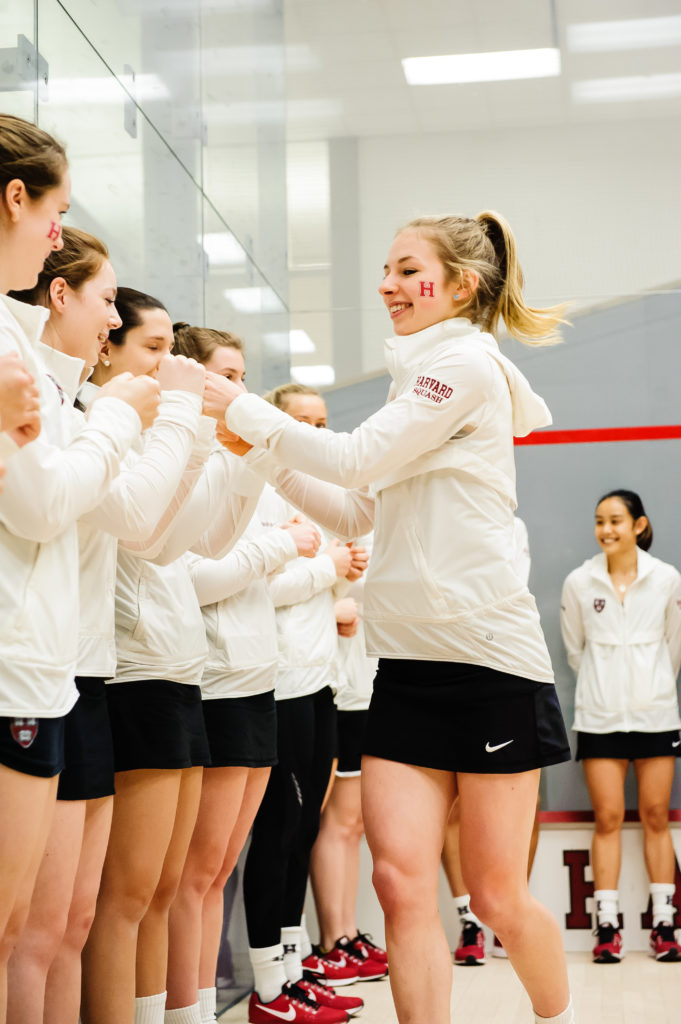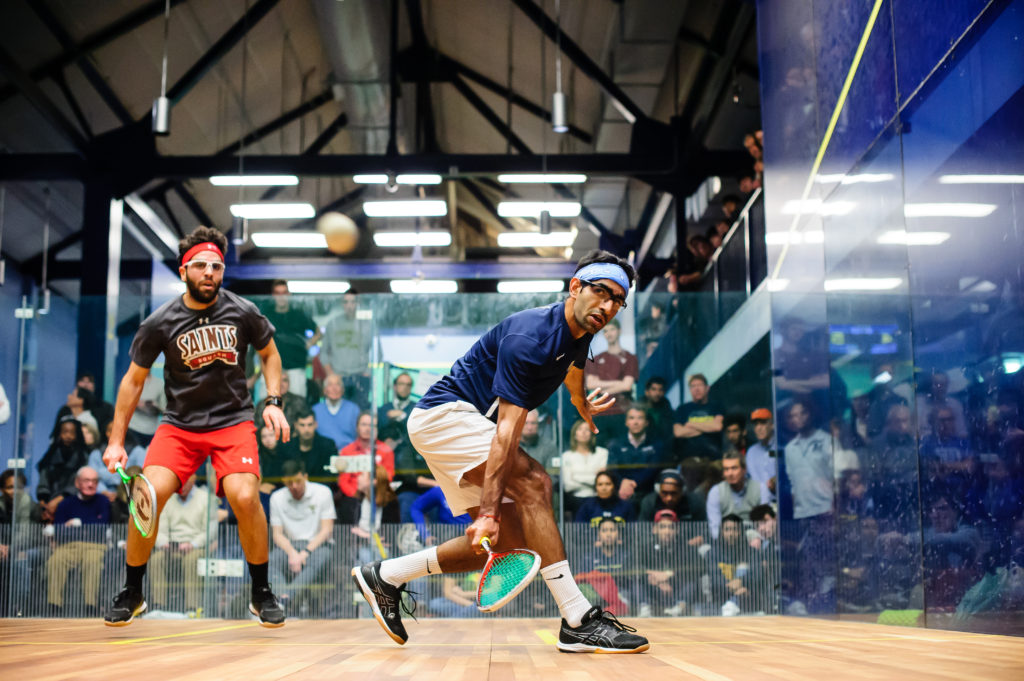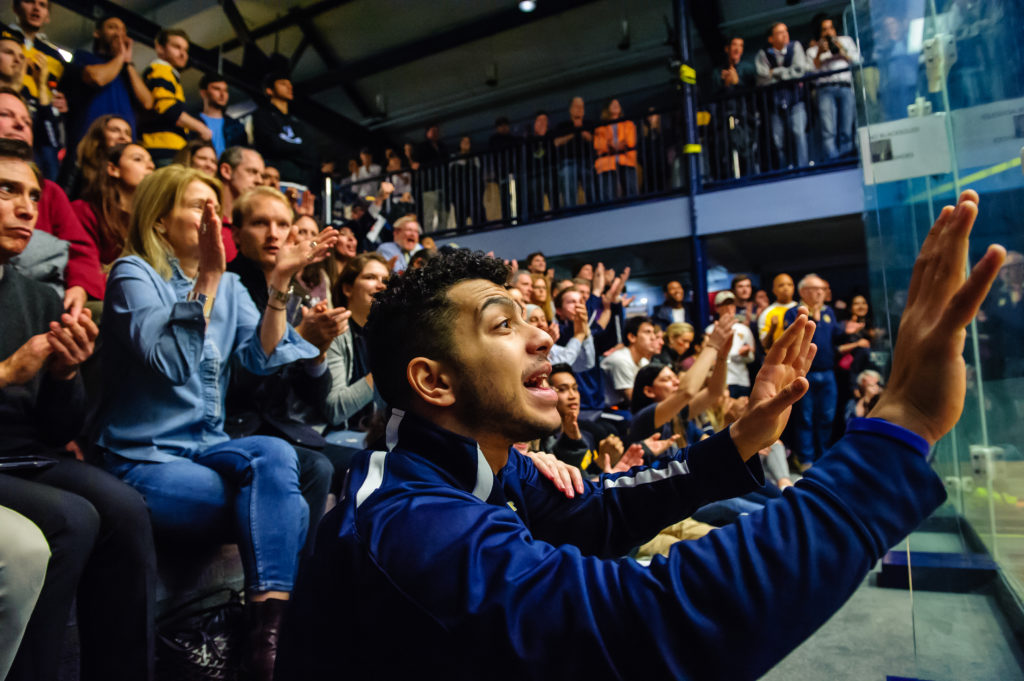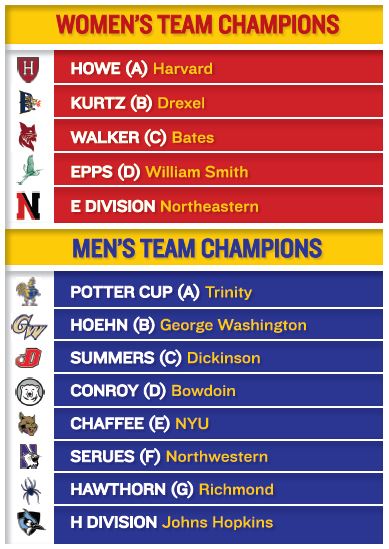by Dent Wilkens
Photography by Michael T. Bello/mtbello.com
The dominance of the 2017-2018 Harvard women’s team may best be contextualized by sophomore Amelia Henley’s position on the team. The Englishwoman had a robust squash resume coming into college: she had won the GU19 European Junior Championship and the GU17 British Junior Championship. Her first year at Harvard, she went 13-1 at No.3 on the Crimson ladder. This year, she proved to be one of the top players in the nation: at the 2018 College Individual Nationals, she upset No.2 seed Olivia Fiechter—Princeton’s senior captain and No.1—and was one game from making the finals before falling to Harvard teammate Georgina Kennedy, the 2017 College Individual Champion.
Henley’s position on the Harvard team lineup this season? No.5.

Harvard has now captured eighteen national team titles, including the last four years and maintains a fifty-three team match win streak. Even within that context, the Crimson’s performance this season was an outlier. The stats are staggering: Harvard lost a total of only three individual matches over the course of fifteen team appearances. In the championship semifinals against rivals Yale—a very strong team coming off a 5-4 win in the quarterfinals over Stanford—Harvard didn’t drop a single game across the nine matches. Only four of those games were closer than 11-7.
“We have a very mature and dedicated group of young women and the team never showed an ounce of complacency all year,” Mike Way, Harvard head coach, said about his current crop of players. “We constantly re-visit our approach and have worked diligently on the program’s culture. Win or lose, their attitude has determined the past few seasons.”
In the team finals Harvard faced Trinity, which fielded an experienced and talented group who promised the best chance of pushing the Crimson. Despite closely-fought matches, Harvard swept 9-0, not allowing any matches to reach a fifth game. The eighteenth team championship pushed Harvard past Princeton’s women, who were previously tied with them at seventeen.
The Harvard winning streak is the longest since the 252 consecutive matches strung together by the Trinity men between 1999 and 2012. Harvard is keeping an eye towards next season; their group of incoming recruits are purported to make them even stronger.

New Era, Same Champion
Over the past several years, there has been talk of the Trinity men’s team taking a step back after winning thirteen consecutive championships between 1999 and 2011. The competition is fierce for entry into the Potter Cup division—the top eight teams—and there is more parity than ever. Teams like Columbia, Rochester and St. Lawrence, who weren’t in the conversation even a decade ago, are now Potter Cup stalwarts.
Don’t be deceived, however. Trinity has proved it still sets the standard for college men’s squash excellence.
Trinity’s championship defense, topping Harvard 6-3 in the final, gave them four of the last six titles, along with seventeen over a two-decade span. The reign is one of the most dominant in college sports history.
The road to a college team title often features a defining moment where the outcome of an entire season hinges on a few points falling one way or another. Time and again, Trinity has proved prepared to meet the challenge. This season it came in the semifinals of the National Teams against St. Lawrence.

“We beat them 5-4 earlier in the season and they were missing two key players,” said Paul Assaiante, Trinity head coach. “They were both back for the nationals, and I simply could not see where the five wins would come from.”
In the middle of the match with the overall score at 3-2 for St. Lawrence, Trinity No.5 Tom De Mulder and No.7 Omar Allaudin both fell behind 2-1 on courts next to each other. Losing either match would put make it difficult for Trinity to find enough wins in the matches remaining to go on court. With the tension palpable in the home Trinity crowd, De Mulder delivered an 11-0 fourth game and took the fifth, while Allaudin dominated the final two games 11-2, 11-3. Trinity capped a 5-4 team win with a victory by Kush Kumar at No. 1.
Trinity had narrowly edged Harvard for the 2017 championship at Harvard; in the 2018 final the Bantams had home-court advantage for the first time in history. The team rode the energy of a packed crowd to take five of the first six matches, eventually winning 6-3 overall. The rivalry has been deeply meaningful in the past few years, and both teams return with title aspirations for 2019.
“It’s amazing to be able to call ourselves rivals with Harvard,” Assaiante said. “Hats off to Mike Way and their team. Next year they are bringing in two of the best juniors in the world. And so we catch our breath over the summer and then start again—we cannot wait.”






